Human CCL5 / RANTES Recombinant Protein Product Attributes
Product Type: Recombinant Protein
Recombinant CCL5 / RANTES based upon sequence from: Human
Host: QP8524 protein expressed in E. coli.
Tag: GST
Protein Construction: A DNA sequence encoding the Homo sapiens (Human) CCL5 / RANTES, was expressed in the hosts and tags indicated. Please select your host/tag option, above.
Application Notes: Please contact us for application specific information for QP8524.
Bioactivity Data: Untested
Full Length? Full Length
Expression Region: Ser24 – Ser91
Amino Acid Sequence: SPYSSDTTPC CFAYIARPLP RAHIKEYFYT SGKCSNPAVV FVTRKNRQVC ANPEKKWVRE YINSLEMS
Purity: Greater than 90% as determined by SDS-PAGE.
Reconstitution Instructions:
Concentration of Human CCL5 / RANTES Protein:
Endotoxin Levels: Not determined.
Buffer: Tris-based buffer, 50% glycerol
Storage Conditions: Store at -20C to -80C.
| Recombinant Human CCL5 / RANTES Protein General Information | |
|---|---|
| Alternate Names | |
| CCL5; RANTES; SISd; TCP228; D17S136E; RANTES; SCYA5; SIS-delta; eoCP | |
| Curated Database and Bioinformatic Data | |
| Gene Symbol | CCL5 |
| Entrez Gene ID | 6352 |
| Ensemble Gene ID | ENSG00000271503 |
| RefSeq Protein Accession(s) | NP_002976.2 |
| RefSeq mRNA Accession(s) | NM_002985.2 |
| UniProt ID(s) | P13501 |
| UniGene ID(s) | Hs.514821 |
| HGNC ID(s) | HGNC:10632 |
| KEGG Gene ID(s) | hsa:6352 |
| PharmGKB ID(s) | PA35564 |
| General Description of Recombinant Human CCL5 / RANTES Protein. | |
| Choattractant for blood monocytes, mory T-helper cells and eosinophils. Causes the release of histamine from basophils and activates eosinophils. May activate several chokine receptors including CCR1, CCR3, CCR4 and CCR5. One of the major HIV-suppressive factors produced by CD8+ T-cells. Recombinant RANTES protein induces a dose-dependent inhibition of different strains of HIV-1, HIV-2, and simian immunodeficiency virus (SIV). The processed form RANTES(3-68) acts as a natural chotaxis inhibitor and is a more potent inhibitor of HIV-1-infection. The second processed form RANTES(4-68) exhibits reduced chotactic and HIV-suppressive activity compared with RANTES(1-68) and RANTES(3-68) and is generated by an unidentified enzyme associated with monocytes and neutrophils . May also be an agonist of the G protein-coupled receptor GPR75, stimulating inositol trisphosphate production and calcium mobilization through its activation. Together with GPR75, may play a role in neuron survival through activation of a downstream signaling pathway involving the PI3, Akt and MAP kinases. By activating GPR75 may also play a role in insulin secretion by islet cells | |
Limitations and Performance Guarantee
This is a life science research product (for Research Use Only). This product is guaranteed to work for a period of two years when stored at -70C or colder, and one year when aliquoted and stored at -20C.

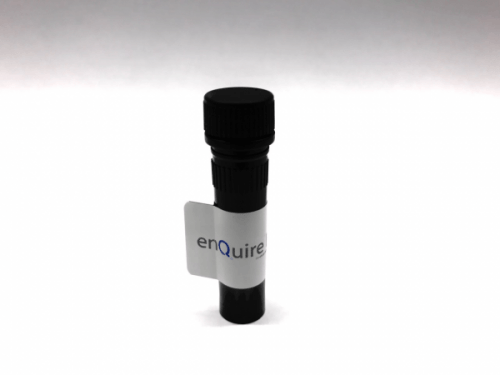

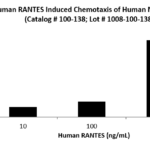
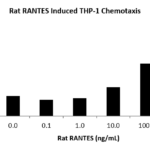
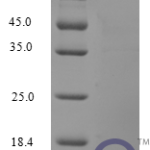
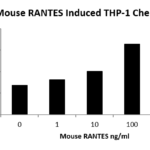
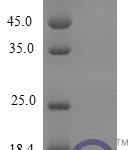

Reviews
There are no reviews yet.